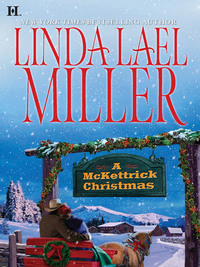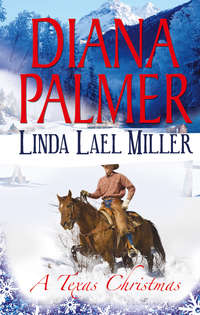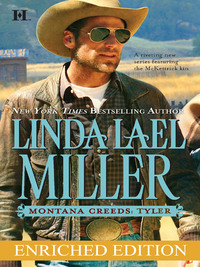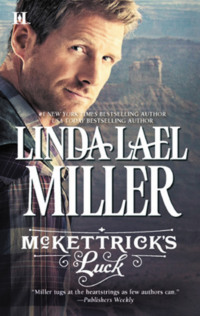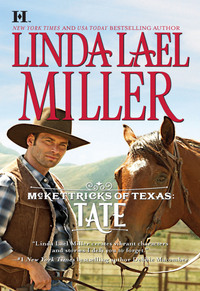
Полная версия
There and Now
“Don’t speak to me until I’ve had a jolt of caffeine,” Elisabeth replied with pretended indignation.
Her friend laughed. “I saw a notice for a craft show at the fairgrounds,” she said as Elisabeth poured coffee. “Sounds like fun.”
Elisabeth only shrugged. She was busy sipping.
“We could have lunch afterward.”
“Fine,” Elisabeth said. “Fine.” She was almost her normal self by the time they’d had breakfast and set out for the fairgrounds in Elisabeth’s car.
Blossom petals littered the road like pinkish-white snow, and Janet sighed. “I can see why you like the country,” she said. “It has a certain serenity.”
Elisabeth smiled, waving at Miss Cecily, who was standing at her mailbox. Miss Cecily waved back. “You wouldn’t last a week,” Elisabeth said with friendly contempt. “Not enough action.”
Janet leaned her head back and closed her eyes. “I suppose you’re right,” she conceded dreamily. “But that doesn’t mean I can’t enjoy the moment.”
They spent happy hours at the craft show, then dined on Vietnamese food from one of the many concession booths. It was when they paused in front of a quilting display that Elisabeth was forcibly reminded of the Jonathan episode.
The slender, dark-haired woman behind the plankboard counter stared at her necklace with rounded eyes and actually retreated a step, as though she thought it would zap her with an invisible ray. “Where did you get that?” she breathed.
Janet’s brow crinkled as she frowned in bewilderment, but she just looked on in silence.
Elisabeth’s heart was beating unaccountably fast, and she felt defensive, like a child caught stealing. “The necklace?” At the woman’s nervous nod, she went on. “I inherited it from my aunt. Why?”
The woman was beginning to regain her composure. She smiled anxiously, but came no closer to the front of the booth. “Your aunt wouldn’t be Verity Claridge?”
A finger of ice traced the length of Elisabeth’s backbone. “Yes.”
Expressive brown eyes linked with Elisabeth’s blue-green ones. “Be careful,” the dark-haired woman said.
Elisabeth had dozens of questions, but she sensed Janet’s discomfort and didn’t want to make the situation worse.
“What was that all about?” Janet asked when she and Elisabeth were in the car again, their various purchases loaded into the back. “I thought that woman was going to faint.”
Chastity Pringle. Elisabeth hadn’t made an effort to remember the name she’d read on the woman’s laminated badge; she’d known it would still burn bright in her mind after nine minutes or nine decades. Whoever Ms. Pringle was, she knew Aunt Verity’s necklace was no ordinary piece of jewelry, and Elisabeth meant to find out the whole truth about it.
“Elisabeth?”
She jumped slightly. “Hmm?”
“Didn’t you think it was weird the way that woman acted?”
Elisabeth was navigating the early-afternoon traffic, which was never all that heavy in Pine River. “The world is full of weird people,” she answered.
Having gotten the concession she wanted, Janet turned her mind to the afternoon’s entertainment. She and Elisabeth rented a stack of movies at the convenience store, put in an order for a pizza to be delivered later and returned to the house.
By the time breakfast was over on Sunday morning, Janet was getting restless. When noon came, she loaded up her things, said goodbye and hastened back to the city, where her boyfriend and her job awaited.
The moment Janet’s car turned onto the highway, Elisabeth dashed to the kitchen and began digging through drawers. Finding a battered phone book, she flipped to the P’s. There was a Paul Pringle listed, but no Chastity.
After taking a deep breath, Elisabeth called the man and asked if he had a relative by the name of Chastity. He barked that nobody in his family would be fool enough to give an innocent little girl a name like that and hung up.
Elisabeth got her purse and drove back to the fairgrounds. The quilting booth was manned by a chunky, gray-haired grandmother this time, and sunlight was reflected in the rhinestone-trimmed frames of her glasses as she smiled at Elisabeth.
“Chastity Pringle? Seems like a body couldn’t forget a name like that one, but it appears as if I have, because it sure doesn’t ring a bell with me. If you’ll give me your phone number, I’ll have Wynne Singleton call you. She coordinated all of us, and she’d know where to find this woman you’re looking for.”
“Thank you,” Elisabeth said, scrawling the name and phone number on the back of a receipt from the cash machine at her Seattle bank.
Back at home, Elisabeth changed into old clothes again, but this time she tackled the yard, since the house was in good shape. She found an old lawn mower in the shed and fired it up, after making a run to the service station for gas, and spent a productive afternoon mowing the huge yard.
When that was done, she weeded the flower beds. At sunset, weariness and hunger overcame her and she went inside.
The little red light on the answering machine she’d hooked up to Aunt Verity’s old phone in the hallway was blinking. She pushed the button and held her breath when she heard Rue’s voice.
“Hi, Cousin, sorry I missed you. Unless you get back to me within the next ten minutes, I’ll be gone again. Wish I could be there with you, but I’ve got another assignment. Talk to you soon. Bye.”
Hastily, Elisabeth dialed Rue’s number, but the prescribed ten minutes had apparently passed. Rue’s machine picked up, and Elisabeth didn’t bother to leave a message. She felt like crying as she went wearily up the stairs to strip off her dirty jeans and T-shirt and take a bath.
When she came downstairs again, she heated a piece of leftover pizza in the microwave and sat down for a solitary supper. Beyond the breakfast nook windows, the sky had a sullen, heavy look to it. Elisabeth hoped there wouldn’t be another storm.
She ate, rinsed her dishes and went upstairs to bed, bringing along a candle and matches in case the power were to go out. Stretched out in bed, her body aching with exhaustion from the afternoon’s work, Elisabeth thoroughly expected to fall into a fathomless sleep.
Instead, she was wide awake. She tossed from her left side to her right, from her stomach to her back. Finally, she got up, shoved her feet into her slippers and reached for her bathrobe.
She made herself a cup her herbal tea downstairs, then settled at the desk in her room, reaching for a few sheets of Aunt Verity’s vellum writing paper and a pen.
“Dear Rue,” she wrote. And then she poured out the whole experience of meeting Jonathan and Trista, starting with the first time she’d heard Trista’s piano. She put in every detail of the story, including the strange attraction she’d felt for Jonathan, ending with the fact that she’d awakened the next morning to find herself wearing his coat.
She spent several hours going over the letter, rewriting parts of it, making it as accurate an account of her experience as she possibly could. Then she folded the missive, tucked it into an envelope, scrawled Rue’s name and address and applied a stamp.
In the morning, she would put it in the mailbox down by the road, pull up the little metal flag and let the chips fall where they may. Rue was the best friend Elisabeth had, but she was also a pragmatic newswoman. She was just as likely to suggest professional help as Elisabeth’s father would be. Still, Elisabeth felt she had to tell somebody what was going on or she was going to burst.
She was just coming upstairs, having carried the letter down and set it in the middle of the kitchen table so she wouldn’t forget to mail it the next morning, when she heard the giggles and saw the glow of light on the hallway floor.
Elisabeth stopped, her hand on the necklace, her heart racing with scary exhilaration. They were back, Jonathan and Trista —she had only to open that door and step over the threshold.
She went to the portal and put her ear against the wood, smiling as Trista’s voice chimed, “And then I said to him, Zeek Filbin, if you pull my hair again, I’ll send my papa over to take your tonsils out!”
Elisabeth’s hand froze on the doorknob when another little girl responded with a burst of laughter and, “Zeek Filbin needed his wagon fixed, and you did it right and proper.” Vera, she thought. Trista’s best friend. How would the child explain it if Elisabeth simply walked into the room, appearing from out of nowhere?
She knew she couldn’t do that, and yet she felt a longing for that world and for the presence of those people that went beyond curiosity or even nostalgia.
The low, rich sound of Jonathan’s voice brought her eyes flying open. “Trista, you and Vera should have been asleep hours ago. Now settle down.”
There was more giggling, but then the sound faded and the light gleaming beneath the door dimmed until the darkness had swallowed it completely. Elisabeth had missed her chance to step over the threshold into Jonathan’s world, and the knowledge left her feeling oddly bereft. She went to bed and slept soundly, awakening to the jangle of the telephone early the next morning.
Since the device was sitting on the vanity table on the other side of the room, Elisabeth was forced to get out of bed and stumble across the rug to snatch up the receiver.
“Yes?” she managed sleepily.
“Is this Elisabeth McCartney?”
Something about the female voice brought her fully awake. “Yes.”
“My name is Wynne Singleton, and I’m president of the Pine River County Quilting Society. One of our members told me you were anxious to get in touch with Ms. Pringle.”
Elisabeth sat up very straight and waited silently.
“I can give you her address and telephone number, dear,” Mrs. Singleton said pleasantly, “but I’m afraid it won’t do you much good. She and her husband left just this morning on an extended business trip.”
Disappointed, Elisabeth nonetheless wrote down the number and street address—Chastity Pringle apparently lived in the neighboring town of Cotton Creek—and thanked the caller for her help.
After she hung up, Elisabeth dressed in a cotton skirt and matching top, even though the sky was still threatening rain, and made herself a poached egg and a piece of wheat toast for breakfast.
When she’d eaten, she got into her car and drove to town. If Rue were here, she thought, she’d go to the newspaper office and to the library to see what facts she could gather pertaining to Aunt Verity’s house in general and Jonathan and Trista Fortner in particular.
Only it was early and neither establishment was open yet. Undaunted, Elisabeth bought a bouquet of simple flowers at the supermarket and went on to the well-kept, fenced graveyard at the edge of town.
She left the flowers on Aunt Verity’s grave and then began reading the names carved into the tilting, discolored stones in the oldest part of the cemetery. Jonathan and Trista were buried side by side, their graves surrounded by a low iron fence.
Carefully, Elisabeth opened the gate and stepped through it, kneeling to push away the spring grass that nearly covered the aging stones. “Jonathan Stevens Fortner,” read the chiseled words. “Born August 5, 1856. Perished June 1892.”
“What day?” Elisabeth whispered, turning to Trista’s grave. Like her father’s, the little girl’s headstone bore only her name, the date of her birth and the sad inscription, “Perished June 1892.”
There were tears in Elisabeth’s eyes as she got to her feet again and left the cemetery.
Конец ознакомительного фрагмента.
Текст предоставлен ООО «ЛитРес».
Прочитайте эту книгу целиком, купив полную легальную версию на ЛитРес.
Безопасно оплатить книгу можно банковской картой Visa, MasterCard, Maestro, со счета мобильного телефона, с платежного терминала, в салоне МТС или Связной, через PayPal, WebMoney, Яндекс.Деньги, QIWI Кошелек, бонусными картами или другим удобным Вам способом.


